Migrants crisis: Germany seizes its chance to help
- Published
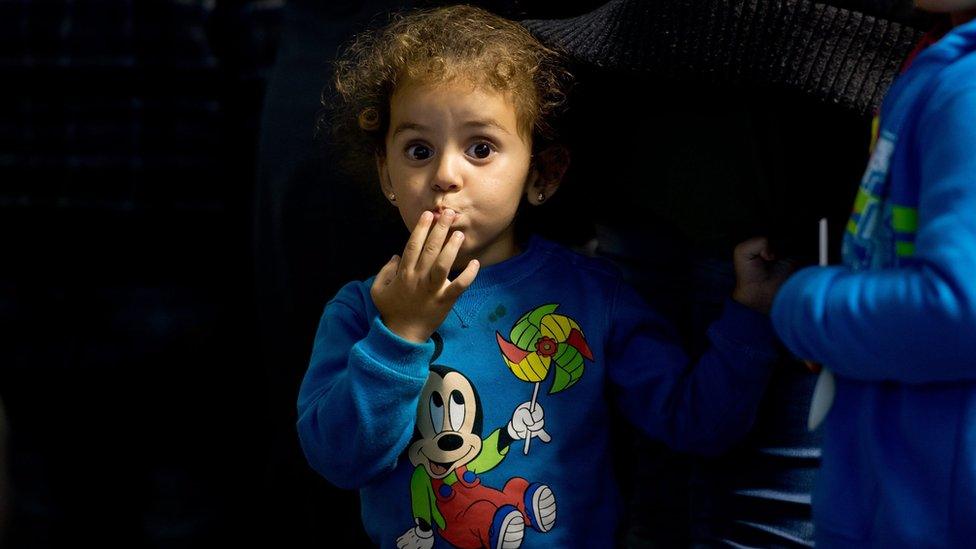
As thousands of migrants make their way north through Europe, the destination for many will be Germany - and Munich's railway station in particular. From there, the BBC's Germany correspondent Jenny Hill reports.
It's raining outside Munich railway station. Inside, the floor is slippery and the concourse is noisy and busy.
Then a few police officers stride purposefully through the crowd, leading a line of weary people towards a brightly lit room at the end of a platform.
These are the refugees who've made it to Germany. And waiting to greet them are scores of volunteers standing next to trestle tables piled with clothing, food and supplies.
As a little girl with dark hair tries on some tiny second-hand shoes, one of those volunteers tells me they're here to meet every train. "It's our turn to help," says Colin.
"This is Europe. Other countries like Greece and Italy have received these people. Now it's Germany's turn."
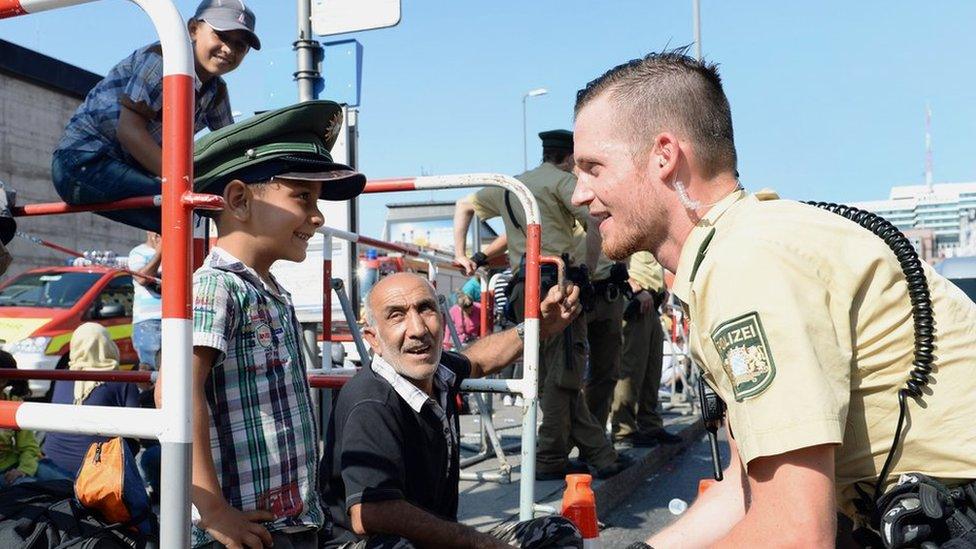
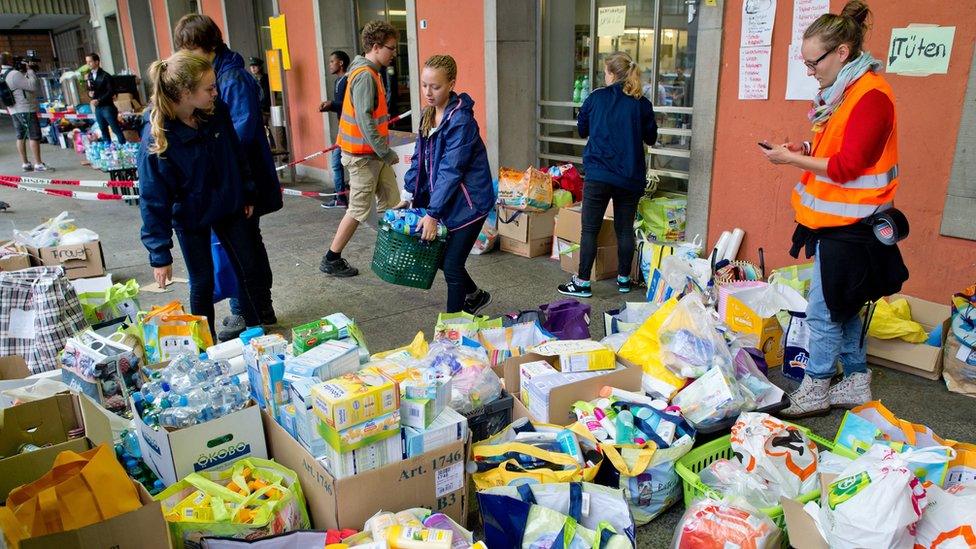
Surveys suggest the vast majority of Germans agree. In almost every town or city, people are giving their time, donating food and clothing, even opening their homes to the thousands of asylum seekers who arrive here every day.
A few days ago, I met a man called Hasseen with sad, tired eyes. He'd just stepped off a train and set foot in Germany for the first time.
He fled Afghanistan, he told me, after the Taliban threatened to kill him.
But when I asked him about his hopes for the future, his expression changed. Smiling, he said: "I'm so happy to be here. The German government welcomes refugees, gives them a home here."
And, broadly speaking, he's right. Last week, for example, the government indicated it would grant asylum to Syrian refugees regardless of how they'd entered Europe.
'Moral obligation'
That attitude has enraged the Hungarian leader, Viktor Orban, who blames Germany's welcoming reputation for the high number of refugees crossing his country.
Angela Merkel disagrees. Germany, she said, is simply fulfilling its "moral and legal" obligations. This is a situation which, she argues, "affects all of us in Europe".
But it's a situation that creates a huge domestic challenge too. Up to 800,000 people are expected to seek asylum in Germany this year alone.
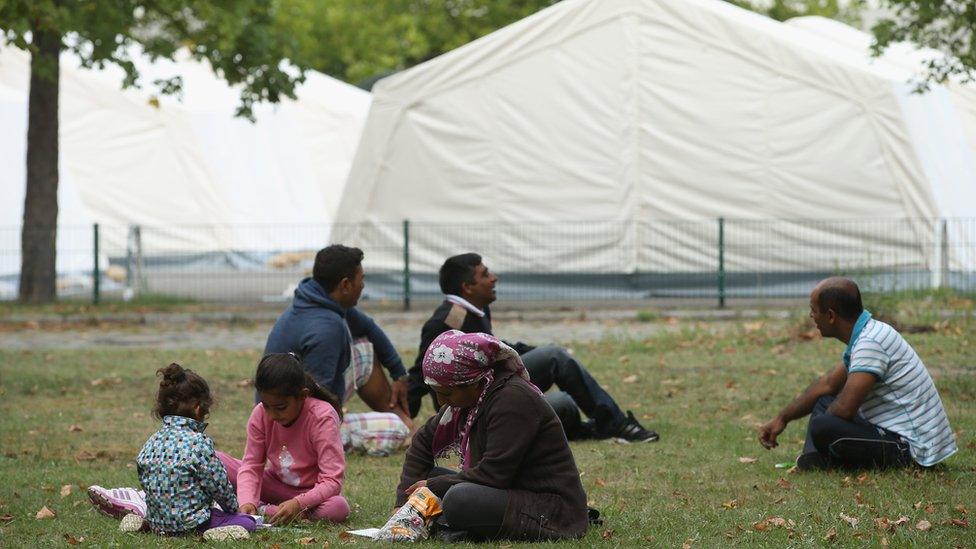
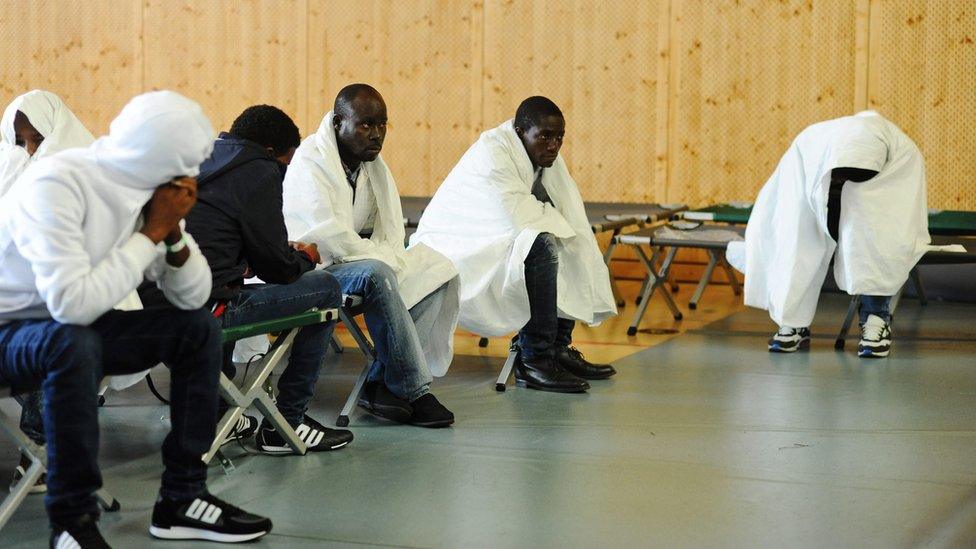
Many asylum seekers are temporarily housed in tents, barracks, gyms. Winter accommodation must be found for them. Towns and cities are demanding more financial support from Berlin. Mrs Merkel is under pressure from her coalition partners to implement a new immigration law.
Then there's the recent spate of anti-refugee violence; a small but growing number of attacks on refugee shelters.
That worries politicians, many of whom are also irritated by the response of other EU member states to the crisis. The interior minister, for example, quite plainly told me that Britain should take in more refugees.
No wonder, perhaps, that Mrs Merkel has led calls for a co-ordinated European response. And her role in that response will be central. But, arguably, her determination to find solutions is motivated by something else.
The crisis, after all, has yet again exposed divisions within the EU - an institution to which Mrs Merkel is wholeheartedly committed.
Her words a few days ago spoke volumes.
"Universal human rights are linked to Europe and its history," she said. "They were one of the founding motives of the EU.
"If we fail on refugees then the connection to those rights is destroyed and it won't be the Europe that we wished for."